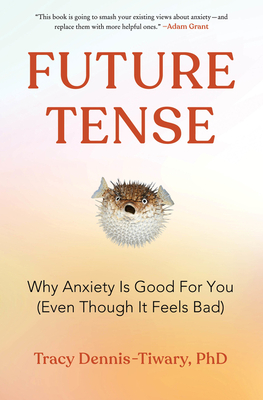Anxiety is your ally: listen to it
Anxiety has become the scourge of our age, with everyone trying to overcome it by turning to medication, therapy, and other well-being practices. Often in vain. So, what about listening to it rather than trying to silence it? It has something to tell you and could even help you move forward. But first you have to get to know it (and be able to identify it). By debunking six preconceptions.
I – Anxiety, stress, and fear; same battle: False
“Climate: 45% of young people suffer from climate anxiety”; “Is anxiety becoming the new plague of the United States?”; “Soon there will be a way to diagnose anxiety systematically”; etc. Anxiety is an endless source of inspiration for the press. But do you know what really lies behind this familiar word that is so casually bandied around?
The collective subconscious often assimilates anxiety with fear and stress. But they are only cousins.

Future Tense : Why Anxiety Is Good For You (Even Though It Feels Bad) by Tracy Dennis-Tiwary (Harper Wave, 2022)
To grasp the difference, imagine yourself in a world inhabited by monsters
- There is one under your bed. You let out a yell and run away. That is fear, one of the five primal emotions – along with joy, anger, sadness, and disgust. Its role is to make us flee danger as fast as possible.
- You have to enter a room which you know to be filled with monsters. Your stomach knots, you break out in a cold sweat, and your heart begins to race. This is stress, a physiological response to an unsettling event in your surroundings.
- You find out the monsters have just hit town and could turn up anywhere. You anticipate the potential threat, which brings muscular tension, a feeling of apprehension, and a state of heightened alert. This is anxiety.
Welcome to the hostile world of this complex emotion which combines unpleasant physical symptoms and negative thoughts (worries, obsessions, and ruminations) in anticipation of an unpredictable, possibly dangerous future.
II – When it comes to anxiety, we are all equal – False
Anxiety is a very common emotion. Most human beings will experience it at some point in their lives. Fortunately, its effects usually wear off pretty fast once the perceived threat either becomes real or disappears.
But some people are more vulnerable than others to anxiety. For some, it can be paralyzing or make them so nervous it is painful. When it gets to the point where it seriously affects someone’s life, it is then seen as pathological and is referred to as Anxiety Disorder. In this case, physical symptoms – a tightening of the chest and throat, sweating, trembling, and difficulty in swallowing – tend to be accompanied by worrying, sometimes for no reason, and cognitive signs such as difficulty concentrating or controlling our thoughts.
This worsening of a state of anxiety is often linked to exposition to a cognitive bias known as attentional bias. This can cause them to be more drawn to threatening stimuli than reassuring stimuli. In a meeting, for example, this attentional bias will push you to focus solely on the speaker who appears to disagree with you, while ignoring all the others who seem to be very receptive to what you are saying.
© Copyright Business Digest - All rights reserved




